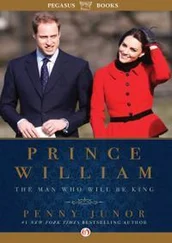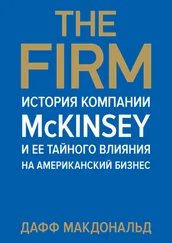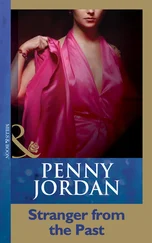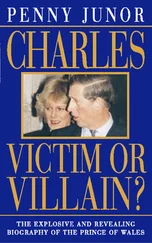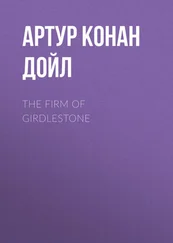Harry has been particularly affected. Whether or not any of this is related to his behaviour is a matter for the psychoanalysts. In the meantime, it is important that a solution be found, before he, like his mother, self-destructs. The answer perhaps is to cut Harry free from the Family Firm. The concept of a Royal Family, of an idealized, closely knit unit that sets a shining example to the country, has had its day. We don’t expect our prime ministers’ families to be on parade. We certainly don’t expect them to play any part in national life, work in government – heaven forbid – or to press the flesh on away days on his or her behalf; and if we elected a president as head of state we wouldn’t expect it of his or her family either. If, as Tristan Garel-Jones would have us do, we think of the Queen as Head of State, then a consort and an heir are as many as should be expected to put up with the demands we make of them. The Lord-Lieutenants would be enormously disappointed – they would like more rather than fewer royals – and the charities would miss out. Celebrities and politicians don’t have the same impact – even as minor royals – and they seldom have the commitment or the staying power. But there are thousands of charities that don’t have royal patronages and they manage perfectly well.
The late Princess Margaret’s two children, Viscount Linley and Lady Sarah Chatto, don’t feature in public life. Their names come up occasionally in gossip and society columns but they live normal lives, have married normal people and are not held up to public scrutiny. Princess Anne’s two children, Peter and Zara Phillips, live normal lives. Not many people would even recognize Peter, he is so seldom seen. Zara is instantly recognizable but that’s her choice. She invited Hello! magazine into her living room – and bedroom; she wears daringly skimpy outfits to Ascot, parades her boyfriends at public venues and clearly enjoys her celebrity status. And nobody minds. Her antics may upset her family but they do not reflect badly on the monarchy because she is not part it; she doesn’t work for the Family Firm. But so long as Harry is expected to, he will attract attention and, because he has already got off on the wrong foot, the media is watching and waiting for the next incident which will come as surely as a London bus.
I can see no purpose in making him knuckle down, forcing him into a mould that doesn’t fit. He is never likely to be king so why make him spend his life shadowed by security, visiting factories, opening hospitals, shaking hands and doing good works, knowing that the slightest indiscretion is going to embarrass his grandmother or his father or, in time, his brother? Why not let him step back from it all and do what he wants with his life? His father found it hard enough to carve out a role for himself and he is heir to the throne; the Army won’t keep him for ever; and the Wessexes have already demonstrated how difficult it is to combine royal life with a career. So let him go out and earn a living free from all encumbrances. If his heart is really set, as he said it was, on following in his mother’s footsteps and carrying on with her work, he could do it as a private citizen. He will always be a name that any charity would want on its notepaper. And if the time ever came when he was needed to take up royal duties, then he could be brought back into the fold.
Which brings us neatly to the subject of the fold – or The Firm. Lord Airlie and Sir Michael Peat revolutionized life at Buckingham Palace in the eighties when they implemented so many of Peat’s recommendations but they didn’t alter the basic structure. Every member of the Royal Family who carries out public engagements has their own household with private secretaries and other staff, and although there are channels of communication in place they don’t always seem to work. According to Mark Goyder, who is director of Tomorrow’s Company, an independent think tank that promotes good governance in business, ‘the structure in management terms is three decades out of date. It’s not a firm, it’s more like a number of tribes, a federation of tribes, and although there is a titular head, corporately it’s quite inefficient.
‘If you were in General Motors in the 1950s or British Rail in the 1980s you saw exactly those things. Then modern management came along and said this is crazy, we must have a structure that reflects function, must have an organization that is effective with compartments, but united towards a common goal.’
A former Press Officer to the Prince of Wales believes doing away with the households is imperative.
It’s divisive. Why have we had this punch-up between St James’s Palace and Buckingham Palace? Because they were working for the individuals and not the institution. It creates tensions. The difficulty for ordinary human beings to understand – and I didn’t understand until I got closer – is you are not selling a product, or a service or a commodity, you’re supporting that individual’s psyche and what they are and do every day of their lives; and they can’t walk away from it, and we the public owe a sense of responsibility which I don’t think we’re acknowledging at the moment, in terms of what price they have to pay and what price we should insist that the media should pay to allow them more privacy than they are allowed at the moment.
I am not suggesting a state department to look after the Royal Family but having people who have responsibility for the institution rather than the individuals and who have a code of practice and standards, not dissimilar to the civil service in terms of how they work, so they do the right thing for the institution. In the civil service we had a change of administration; the machinery kept going and was more important than the individual.
One solution, proposed by Tristan Garel-Jones, would be for the Head of State to have a private office that mirrors the Prime Minister’s. At No. 10 a series of bright young stars from various government departments work in the Prime Minister’s outer office for two or three years as part of the career path. This means they go back to their department with some knowledge of how the Prime Minister’s office and No. 10 function. This could be reproduced at Buckingham Palace at the push of a button. It is already moving in that direction but he would institutionalize the practice. The advantage is it would feed back into Whitehall a whole raft of up-and-coming civil servants who, having been doing the briefing notes and writing the speeches, would have an understanding of the Head of State’s functions and an appreciation of how important and difficult it can be at times. He would also do away with the separate households – even the Prince of Wales’s, and would route everything through the Head of State’s office. ‘So if you’re a minor member of the Royal Family and you’re invited to go and open a hospital in Nottingham, you get on to the Head of State’s office and say “I’ve been invited, should I do it?” And they would say, “Yes, we’ll send you a briefing note and a speech.” Nothing can do more, in my view, to strengthen the institution than if we all got used to referring to the Queen as the Head of State and that she was provided with the sort of administrative back-up that the Head of State in a country like ours ought to have.’
Another good idea, suggested by a former press secretary, would be to find ways of engaging the public, giving them a feeling of ownership and involvement in the business of monarchy, so that they too understand what the institution is for. She would like to get schoolchildren to do projects for Trooping the Colour, for instance, and let the best ones go into the programme and have the winners meet the Queen; she would like to see ordinary children at the State Opening of Parliament – have them carrying the Queen’s train perhaps; and she would like to see people from the Palace go out into the community to explain to people what monarchy is all about. She once asked why the media were not allowed into investitures, given that the Queen was presenting medals on behalf of the country, and was told it would destroy the mystery. ‘I was made to feel as though I’d grown two heads,’ she says. ‘You won’t ever get the mystique back but I’m not sure you need it. It’s partly the mystique that has produced this lack of relevance.’
Читать дальше
Конец ознакомительного отрывка
Купить книгу

